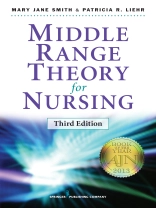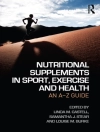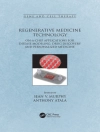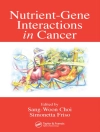Awarded first place in the 2013 AJN Book of the Year Awards in the Nursing Research category
‚This is an outstanding edition of this book. It has great relevance for learning about, developing, and using middle range theories. It is very user friendly, yet scholarly.‘ Score: 90, 4 Stars.– Doody’s Medical Reviews
Middle range theory has become a vital staple of nursing education and application to research. These theories, which lie between the working hypotheses derived from day-to-day research and the larger, systemic efforts to develop unified theories, cover the scientific underpinnings that guide nursing practice and research.
This third edition of a two-time AJN Book of the Year Award winner contains two new theories, including self-reliance theory and transitions theory. It revises and updates all other content, and provides ladders of abstraction for each theory to guide students in their appropriate use. This highly accessible book integrates nursing theory with well-defined practice areas, identifies purpose and basic concepts, foundational literature, relationships among concepts, and use in practice. Chapters are organized by central theories, each of which is covered in depth. Comprehensive bibliographies at the end of each chapter facilitate more in-depth research. The book remains an essential text for theory and research courses in master’s and doctoral nursing programs.
New to the Third Edition:- Presents two new theories: self-reliance theory and transitions theory
- Deletes two theories no longer in use: community empowerment and family stress/adaptation
- Updates and revises all other content from the second edition
- Guides students in appropriate use of theory per level of complexity
Inhaltsverzeichnis
Section One: Setting the Stage for Middle Range Theories
1 Disciplinary Perspectives Linked to Middle Range Theory
2 Understanding Middle Range Theory by Moving Up and Down the Ladder of Abstraction
3 Evaluation of Middle Range Theories for the Discipline of Nursing
Section Two: Middle Range Theories Ready for Application
4 Theories of Uncertainty in Illness
5 Theory of Meaning
6 Theory of Self-Transcendence
7 Theory of Symptom Management
8 Theory of Unpleasant Symptoms
9 Theory of Self-Efficacy
10 Story Theory
11 Theory of Transitions
12 Theory of Self-Reliance
13 Theory of Cultural Marginality
14 Theory of Caregiving Dynamics
15 Theory of Moral Reckoning
Section Three: Concept Building for Research ñ Through the Lens of Middle Range Theory
16 Concept Building for Research
17 Yearning for Sleep While Enduring Distress
18 Reconceptualizing Normal
19 Yearning to be Recognized: From Concept Building to Proposal Development to Data Gathering and Analysis
20 Catastrophic Cultural Immersion: From Concept Building to Proposal Development to Data Gathering and Analysis
Über den Autor
Patricia R. Liehr, Ph D, RN, graduated from Ohio Valley Hospital, School of Nursing in Pittsburgh, Pennsylvania. She completed her bachelor’s degree in nursing at Villa Maria College, her master’s in family health nursing at Duquesne University and her doctorate at the School of Nursing, University of Maryland, Baltimore. She did postdoctoral education at the University of Pennsylvania as a Robert Wood Johnson scholar. Currently, Dr. Liehr is a professor emerita of nursing at the Christine E. Lynn College of Nursing at Florida Atlantic University; she has taught nursing theory to master’s and doctoral students for over 3 decades.












